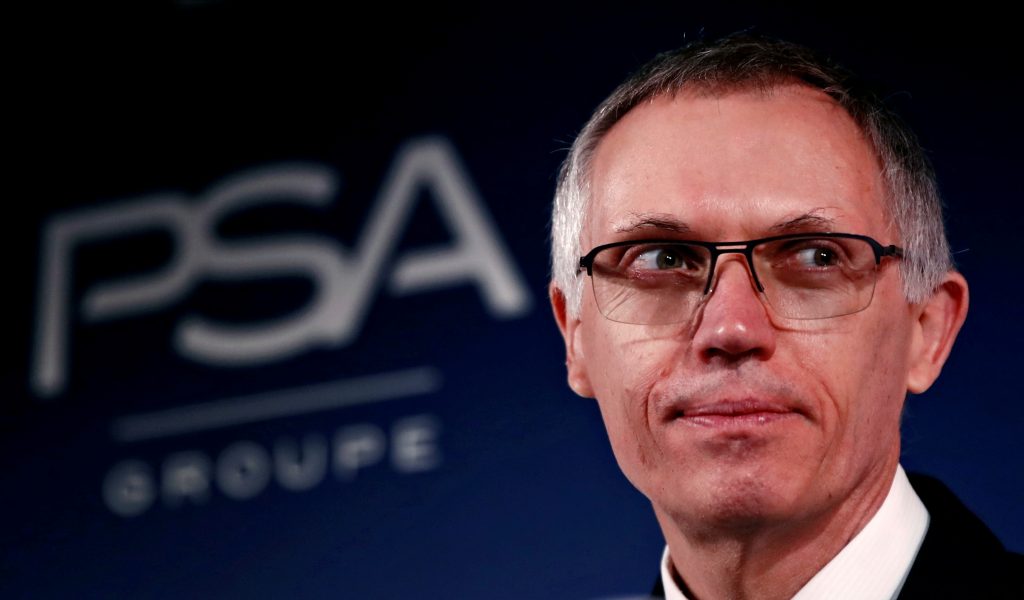AUTONEWS

Carlos Tavares responds to BMW CEO and defends the end of combustion engines
In 2015, the European Union, after extensive negotiations with automakers that sell their vehicles in Europe, reached an agreement on the schedule for the electrification of the automotive market, in order to reduce CO2 emissions. In 2020 the limit would be 95g/km (in NEDC, a value that in reality corresponded to 116g in the most modern and close to reality WLTP system), and in 2025 it would drop to 96g of CO2 (already in WLTP). The goal is to continue evolving until reaching 0g of CO2 in 2035, which will result in the end of the commercialization of combustion engines, whether gasoline, diesel or LPG, hybrid or not. Now there are brands, such as BMW, demanding that the agreed targets suffer a slippage, while other manufacturers, who invested heavily to achieve emissions reductions, defend compliance with what was defined 10 years ago.
To the automakers fighting to avoid emission limits, the CEO of Stellantis, Carlos Tavares(image above), responded with a rational speech, but which many may see as “murderous” in content. In one fell swoop, he stated that Stellantis — which has invested an average of 14 billion euros per year in electric vehicles — wants to be on the right side of history” with regard to banning combustion engines in 2035, adding that “those Those who ask for legislation to be delayed are because they do not see climate change as a significant problem.” It now turns out that few developers (and their respective shareholders) will be happy to be accused of being on the wrong side of history, or of choosing to chase profits at the expense of the climate and the well-being of the population.
This week Oliver Zipse, the CEO of BMW, went public to defend that “it is no longer realistic to end gasoline cars in 2035”, stating that brands are unable to sell more electric vehicles and threatening a sharp reduction in production. This is because, to respect the agreed CO2 limits, they will only be able to sell combustion cars if they sell the necessary volume of 100% battery-powered models, in order to reach an average weight below 96g. Or, they risk paying million-dollar fines for non-compliance, and can alternatively purchase carbon credits from automakers that sell exclusively (or mainly) electric cars.
Instead of these expensive solutions, German manufacturers saw the German Government (in the largest European market) “doing them the favor” of withdrawing, at the beginning of 2024, incentives for electric vehicles, largely responsible for the reduction in sales, maintaining Even so, the aid for plug-in hybrids, which all local brands have invested in, because it allows them to avoid large investments (in factories for specific platforms for electric vehicles and their batteries) and thus maximize profits in the short term.
In addition to the end of the sale of combustion engines in 2035, which BMW's CEO mentioned, as well as the difficulty in meeting the targets set for 2025, which Zipse only touched on by threatening to reduce manufacturing, German automakers — notably BMW, Mercedes and Porsche — are still grappling with another problem, as the way in which the consumption and emissions of plug-in hybrids, on which they depend so much, are calculated will be changed in January 2027. And the values are expected to increase by around five times, rising from consumption averages of 1 liter to 5 l/100 km, with CO2 emissions rising from 15g to 75g of CO2/km, which will make this type of mechanics very uninteresting for 2030.
Stellantis only guarantees a future for the 14 brands until 2026...Stellantis, the 4th largest automotive group in the world, is going through a difficult period, a bit like most traditional automakers. But for this group that mixes the interests of French, Italian and North American investors, the crisis has already cost the jobs of a series of senior company officials and even the head of CEO Carlos Tavares, the Portuguese manager who worked miracles with PSA and so he managed to manage the marriage with FCA to start with Stellantis. The crisis and the need to electrify current vehicles have exposed the difficulties of some of the group's 14 brands, mainly the American ones, and despite leaving in 2026, Tavares continues with the support of the Agnelli families (FCA, Stellantis' largest shareholders). and Peugeot (PSA) and promises to continue the strategy that put him in trouble, that is, closing or selling brands that are not profitable.
Playing at home at the Paris Motor Show, Tavares ruled out the 2021 commitment, in which the group guaranteed that the 14 brands had their future assured for 10 years. According to Automotive News, the “either make a profit or disappear” strategy was brought forward from 2031 to 2026. This means that, almost simultaneously with the departure of the Portuguese at the helm of Stellantis, all brands will have to become profitable, so one side and the other of the Atlantic.
The chairman of Stellantis and grandson of Giovanni Agnelli, John Elkann, confirmed to AFP that the company he presides over is not interested in mergers or acquisitions, stating that they are not ready to consolidate, but neither are we ready to “deconsolidate”, as this is not is the ideal period. He also guaranteed that “they are focused on the business” and that “all changes in terms of leadership were determined by Tavares and with the support of shareholders”.
Although the change of CEO practically coincides with the potential end of some of the group's brands, Stellantis' strategy seems to involve Tavares' replacement being responsible for these difficult decisions. Closing brands and factories in Italy and France will always be problematic, but even more delicate will be carrying out these operations in the USA.
Mundoquatrorodas

Nenhum comentário:
Postar um comentário